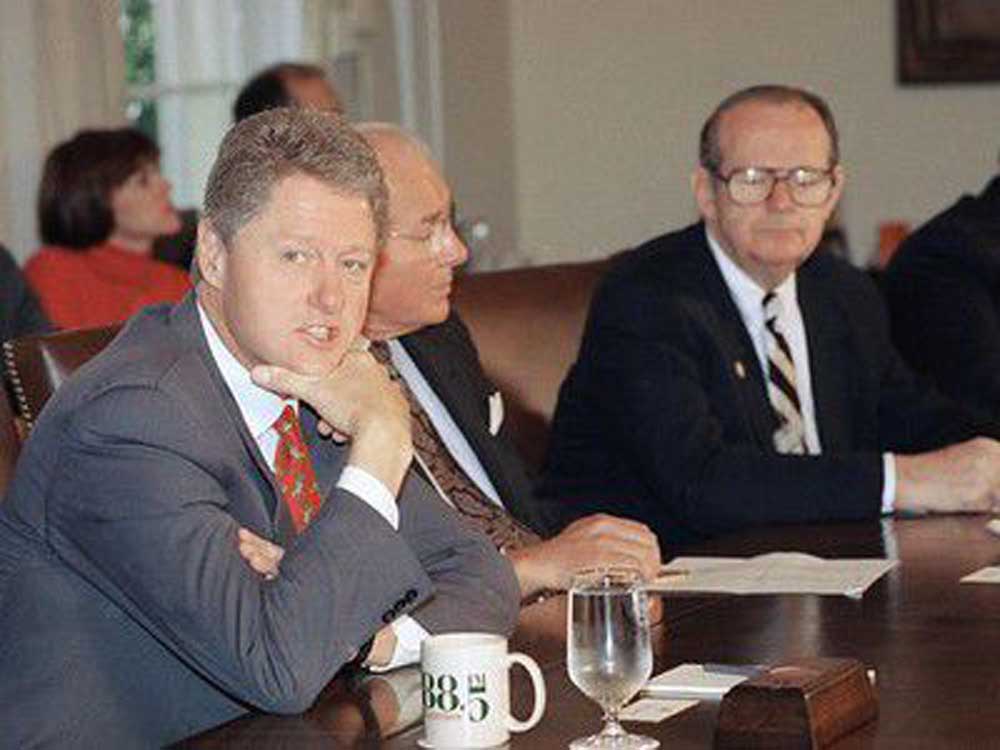Editorial: Texas benefits immensely from NAFTA
Published 7:25 pm Friday, December 2, 2016

- President Bill Clinton negotiating NAFTA in this undated AP file photo.
A new study shows that Texas benefits from the North American Free Trade Agreement, and it’s up to Texans in Congress to defend NAFTA from President-elect Donald Trump.
“Far from abandoned mills and factories of the industrial Midwest, where simmering anger over trade deals and jobs shipped overseas helped catapult Donald Trump to victory, Texas’ export economy is powered by NAFTA,” the Wall Street Journal reports. “As a candidate, the president-elect blasted the 22-year-old agreement, which allows goods to move across the borders of Mexico, the U.S. and Canada without tariffs, and said he would like to revamp it. That sets up a challenge for the president-elect, who must weigh his campaign promises to right the Rust Belt’s crumbling factory economy without slowing the Texas trade juggernaut. Many of the businesspeople here who are fretting about what might become of NAFTA supported Mr. Trump in the election… and say they are hopeful he won’t follow through on his threats, pointing to his experience as a businessman.”
Texas companies, big and small, export a total of $92.5 billion worth of goods to Mexico each year. That figure dwarfs second-place California, which exports just $26.8 billion of goods.
“From the booming border city of Laredo to the bustling trading hub of Dallas-Fort Worth, Texas has become the nation’s top exporter of goods, according to the Federal Reserve Bank of Dallas, and Mexico is its biggest customer,” the Journal explains. “Some 382,000 jobs in Texas alone depend on trade with Mexico, according to 2014 data released this month by the Woodrow Wilson International Center for Scholars, a nonpartisan global research group. Goods exported from Texas help support more than a million jobs across the U.S., according to the U.S. Commerce Department.”
Texas’ top exports to Mexico are computer and electronic products, petroleum and coal products, chemicals, machinery and transportation equipment.
Trump has pledged to renegotiate or withdraw from NAFTA. And his choice for Commerce Secretary, Wilbur Ross, is also a critic of the agreement.
According to CNN, Ross said last week that “the renegotiation of the North American Free Trade Agreement is one of the first – if not the first – things he will tackle on Day One of the job.”
Ross added, “We’re working out the fine-point details, but NAFTA is a logical starting point.”
Fortunately, on trade agreements such as NAFTA, Trump is also limited in what he can actually accomplish.
“Without the consent of Congress, the president is authorized to withdraw the United States from NAFTA – that is not really in doubt,” explains the Cato Institute’s Daniel Ikenson. “The question, however, is whether congressional authorization is required to raise tariffs on Mexico and Canada back up to their non-preferential rates – and to undo the other liberalizing provisions. If so, a withdrawal from NAFTA would have no real impact unless Congress was also on board.”
Trump can still get much done if he uses his lauded negotiating skills and works with our trading partners, rather than against them. But ditching NAFTA would be a mistake.






